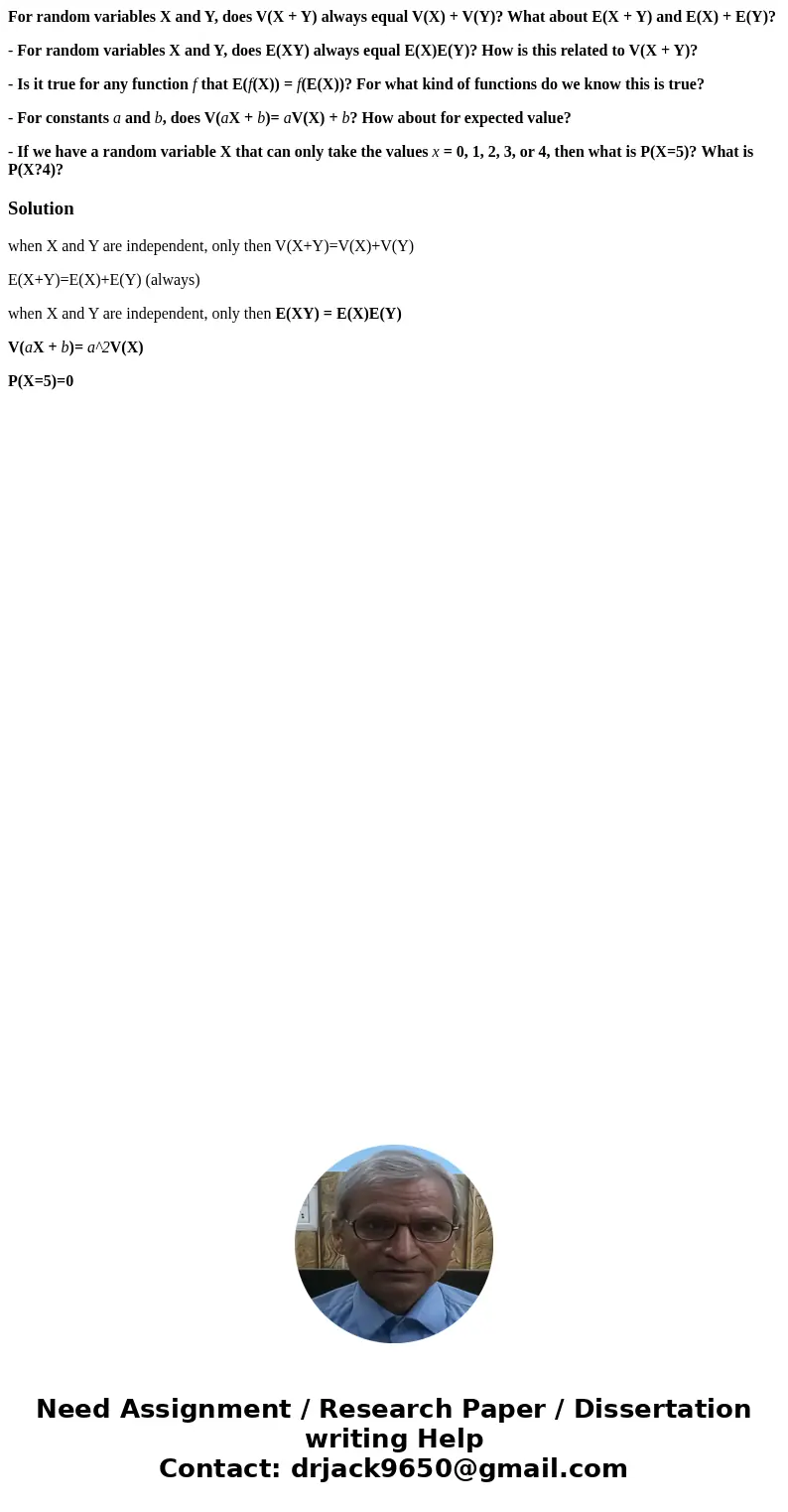For random variables X and Y does VX Y always equal VX VY
For random variables X and Y, does V(X + Y) always equal V(X) + V(Y)? What about E(X + Y) and E(X) + E(Y)?
- For random variables X and Y, does E(XY) always equal E(X)E(Y)? How is this related to V(X + Y)?
- Is it true for any function f that E(f(X)) = f(E(X))? For what kind of functions do we know this is true?
- For constants a and b, does V(aX + b)= aV(X) + b? How about for expected value?
- If we have a random variable X that can only take the values x = 0, 1, 2, 3, or 4, then what is P(X=5)? What is P(X?4)?
Solution
when X and Y are independent, only then V(X+Y)=V(X)+V(Y)
E(X+Y)=E(X)+E(Y) (always)
when X and Y are independent, only then E(XY) = E(X)E(Y)
V(aX + b)= a^2V(X)
P(X=5)=0

 Homework Sourse
Homework Sourse